Medical equipment calibration services are vital for ensuring the precision and accuracy of medical devices used in various healthcare settings. Expert medical equipment calibration services are essential to ensure that all equipment used for patient care and diagnosis is operating at optimal performance. From monitoring devices to diagnostic imaging equipment, reliable calibration services are essential to maintain the accuracy of medical equipment. In this article, we will explore the importance of expert medical equipment calibration services and how they contribute to the quality and safety of patient care.
Expert Medical Equipment Calibration Services are essential in ensuring the precision and accuracy of medical devices used in clinical settings. This process involves precise adjustments and testing of equipment to ensure that they are functioning within specified tolerances and producing accurate results. Calibration services are critical for maintaining the quality and reliability of medical equipment, ultimately contributing to the delivery of safe and effective patient care. Trusted providers offer comprehensive calibration services for a wide range of medical equipment, utilizing advanced tools and techniques to ensure compliance with industry standards and regulatory requirements. By partnering with experts in medical equipment calibration, healthcare facilities can be confident in the accuracy and reliability of their devices, ultimately enhancing patient safety and the quality of care provided.
The Importance of Regular Medical Equipment Calibration for Patient Safety
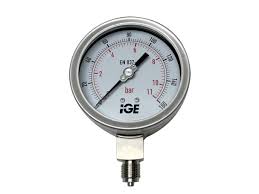
Medical equipment calibration is essential for maintaining patient safety within healthcare settings. Regular calibration ensures that medical devices, such as monitors, blood pressure cuffs, and infusion pumps, provide accurate and reliable readings and treatments. Inaccurate equipment can lead to misdiagnosis, incorrect treatment, and potential harm to patients. By adhering to a schedule of regular calibration, healthcare facilities can mitigate the risks associated with faulty equipment and ensure the highest standard of care for their patients. Moreover, it is a regulatory requirement for healthcare organizations to maintain properly calibrated medical equipment, emphasizing the importance of this practice for patient safety. Overall, regular calibration of medical equipment is crucial to upholding the quality and accuracy of patient care.
Choosing the Right Provider for Medical Equipment Calibration Services
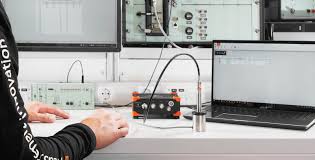
Choosing the right provider for medical equipment calibration services is essential to ensure the accuracy and reliability of your medical equipment. It is crucial to partner with a reputable and experienced calibration service provider that adheres to industry standards and best practices. Look for a provider with a proven track record in servicing medical equipment and a team of skilled technicians who are knowledgeable about the specific requirements for medical device calibration. Additionally, consider factors such as accreditation, certification, and customer reviews when selecting a calibration service provider for your medical equipment. By carefully evaluating these factors, you can ensure that you choose a reliable and qualified provider for your medical equipment calibration needs.
Understanding the Cost and Benefits of Medical Equipment Calibration
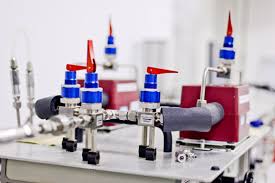
Medical equipment calibration is a critical aspect of ensuring the accuracy and reliability of diagnostic and treatment tools in a healthcare setting. Calibration involves the adjustment or comparison of the measurement accuracy of a piece of equipment to a known or standard value. This process helps to maintain the proper functioning of medical devices and instruments, which is crucial for patient safety and quality of care. Understanding the cost and benefits of medical equipment calibration is essential for healthcare providers and facilities. The cost of calibration includes the expenses associated with hiring qualified personnel, acquiring calibration standards, and potential downtime of equipment during the calibration process. However, the benefits of proper calibration far outweigh the costs. Calibration ensures that medical equipment provides accurate and precise measurements, which is critical for making informed clinical decisions and delivering effective treatments. Furthermore, regular calibration can extend the lifespan of medical devices, reduce the risk of errors and malfunctions, and ultimately lower the overall cost of equipment ownership. Additionally, adherence to calibration standards and regulations is necessary for maintaining accreditation and compliance with industry standards and regulations. Overall, understanding the cost and benefits of medical equipment calibration is essential for healthcare organizations to make informed decisions about managing their equipment and ensuring the delivery of high-quality patient care.
The Role of Accreditation in Medical Equipment Calibration Services
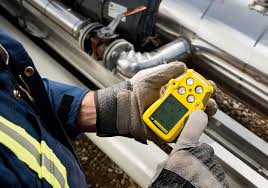
In the medical field, accreditation plays a crucial role in ensuring the quality and reliability of medical equipment calibration services. Accreditation demonstrates that a calibration service provider meets specific standards of competence, impartiality, and performance, as set forth by accrediting bodies such as ISO/IEC 17025 and ANSI. This provides assurance to healthcare providers and regulatory agencies that the calibration services are conducted with the highest level of technical proficiency and accuracy. Additionally, accreditation helps to standardize calibration practices and promotes a culture of continuous improvement within the medical equipment calibration industry. Ultimately, accreditation plays a vital role in maintaining the integrity and trustworthiness of medical equipment calibration services, which are essential for the safe and effective delivery of healthcare.
Common Types of Medical Equipment Requiring Calibration
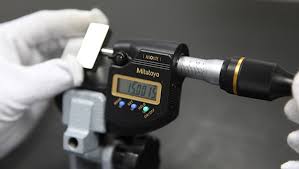
1. Blood pressure monitors: Regular calibration ensures accurate readings, which are crucial for diagnosing and monitoring patients with cardiovascular conditions. 2. ECG machines: Calibration is necessary to maintain the accuracy of electrical signals and ensure reliable detection of abnormal heart rhythms. 3. Infusion pumps: Precise calibration is essential to deliver accurate medication doses to patients, especially in critical care environments. 4. Defibrillators: Calibration is crucial for ensuring the device delivers the appropriate electrical energy to restore normal heart rhythm during a cardiac arrest. 5. Ventilators: Proper calibration is necessary to ensure the device delivers the correct volume and rate of air to support patients with respiratory failure. 6. Thermometers: Calibration helps maintain temperature accuracy for both patient comfort and monitoring body temperature. 7. MRI machines: Regular calibration is essential to ensure the accuracy of imaging and diagnostic results for patients undergoing MRI scans. 8. Ultrasound machines: Calibration maintains the accuracy of sound waves used for imaging soft tissues and organs in the body. 9. Laboratory equipment: This includes devices such as centrifuges, microscopes, and spectrophotometers, which require precise calibration for accurate laboratory testing and research purposes.
Quality Control and Assurance in Medical Equipment Calibration Services
Quality control and assurance in medical equipment calibration services are essential to ensure the accuracy and reliability of the calibrated equipment. This typically involves adherence to industry standards and regulations, rigorous testing and validation processes, and the use of traceable reference standards. Regular audits and inspections are also conducted to ensure that the calibration services meet the required quality standards. Additionally, documentation and record-keeping are crucial aspects of quality assurance to track the calibration history and ensure the equipment meets the necessary specifications. Quality control and assurance measures are put in place to provide confidence in the accuracy and precision of medical equipment used in various healthcare settings.
Maximizing the Lifespan of Medical Equipment through Calibration
weigh scale calibration services
Medical equipment calibration is an essential process for ensuring the accuracy and reliability of medical devices. By calibrating equipment regularly, healthcare providers can maximize the lifespan of the equipment, maintain quality patient care, and minimize the risk of errors or malfunctions. Calibration involves adjusting and verifying the accuracy of equipment to ensure that it meets the required standards and specifications. This process helps to extend the usable lifespan of the equipment, reduce the need for costly repairs or replacements, and improve patient safety. Regular calibration also ensures that medical devices continue to perform optimally, providing accurate and consistent results for diagnosis, treatment, and monitoring. Overall, maximizing the lifespan of medical equipment through calibration is crucial for maintaining the quality and efficiency of healthcare services.
The Impact of Technology on Medical Equipment Calibration Services
The impact of technology on medical equipment calibration services has been significant in recent years. Advances in technology have led to the development of more precise and efficient calibration equipment, allowing for more accurate and reliable calibrations. Furthermore, the use of digital data collection and analysis has improved the overall quality of calibration services, leading to better patient outcomes and increased safety in healthcare settings. Additionally, technology has enabled remote calibration and monitoring of medical equipment, reducing the need for on-site visits and minimizing downtime. Overall, technology has greatly enhanced the effectiveness and efficiency of medical equipment calibration services, ultimately benefiting both healthcare providers and patients.
The Legal and Regulatory Aspects of Medical Equipment Calibration<
testing and calibration services/h2>
The legal and regulatory aspects of medical equipment calibration are enforced to ensure that medical devices meet the required quality and safety standards. Calibration is the process of verifying and adjusting the accuracy of medical equipment to ensure that it functions within specified limits. It is critical for maintaining the accuracy and reliability of medical devices in healthcare settings. Regulatory agencies, such as the Food and Drug Administration (FDA) in the United States, have established guidelines and regulations for medical equipment calibration. These regulations outline the requirements for calibration procedures, documentation, and the qualifications of individuals performing the calibration. Non-compliance with these regulations can result in penalties and legal repercussions for healthcare facilities and professionals. Additionally, medical equipment calibration is often governed by industry standards and guidelines, such as those provided by the International Organization for Standardization (ISO) and the National Institute of Standards and Technology (NIST). These standards help ensure that medical equipment is calibrated to precise technical specifications and meets quality and performance requirements. In conclusion, adherence to legal and regulatory requirements for medical equipment calibration is essential for ensuring patient safety and the effectiveness of healthcare services. Healthcare facilities and professionals must stay informed about the latest regulatory developments and comply with the applicable standards to maintain the accuracy and reliability of medical devices.
Emerging Trends in Medical Equipment Calibration Services
Emerging trends in medical equipment calibration services include the use of advanced technology such as artificial intelligence and machine learning algorithms to enhance the accuracy and efficiency of calibration processes. Additionally, there is a growing focus on remote calibration services, which allow for calibration and maintenance of medical equipment to be conducted off-site, reducing downtime and improving overall operational efficiency. Another emerging trend is the implementation of predictive maintenance techniques, which use data analytics to anticipate when medical equipment may require calibration or maintenance, thus preventing potential issues before they arise. These trends reflect the increasing demand for more precise and streamlined calibration services in the healthcare industry.
